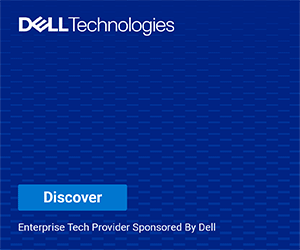As IT grows and becomes increasingly complex, there is a need for standardization and automation to help simplify infrastructure and application workflows. As a result, customers now expect their solution providers to deliver technology that can help streamline their operations and boost agility with intelligent software-driven automation.
Dell Technologies recognized the evolution of the modern IT department and so developed PowerFlex, an unbounded software-defined infrastructure that maximizes IT ecosystem flexibility. PowerFlex is designed to accelerate customer modernization and consolidation initiatives, to not only ensure optimal workload execution but also provide extensive automation capabilities that can boost business agility.
Recently, Dell announced an update to its PowerFlex platform, dubbed “PowerFlex 4.0”, and with this update comes new capabilities that address modern IT needs, including unified PowerFlex Manager, PowerFlex file services, and NVMe/TCP protocol support for host connectivity.
Deliver the support your customers need with PowerFlex
PowerFlex offers support for heterogeneous operating platforms on a common infrastructure deployment. This includes support for multiple OS, hypervisors, and container management platforms.
Additionally, PowerFlex supports a wide variety of Kubernetes and hyperscaler platforms, with the flexibility to utilize either bare metal or virtualized deployment architecture.
PowerFlex has since expanded to now include support for Amazon EKS Anywhere on bare metal to go with Amazon EKS Anywhere in a virtual environment.
What’s new in the PowerFlex 4.0 release?
The PowerFlex 4.0 release advances fundamental modernization capabilities for your customers. This includes, but is not limited to, the introduction of new file services that complement existing block storage services. With this update, PowerFlex can now enable even greater consolidation efficiency while also simplifying operations.
PowerFlex has been and continues to be at the forefront of cutting-edge storage technology. With the 4.0 release, Dell has pushed the edge further with added support for NVMe/TCP, a standards-based protocol that expands PowerFlex host connectivity. This gives customers the option to utilize the next-generation standards-based storage connectivity, too.
PowerFlex 4.0 combined tools and UIs needed for Lifecycle Management (LCM) and IT operations with storage management across file and block storage services in the unified PowerFlex Manager. It further simplifies IT Operations and lifecycle management tasks by providing extensive automation within a single user interface, reducing administrative overhead.
The rich out-of-the-box toolset that comes with PowerFlex 4.0 includes Dell Container Storage Modules (CSM) and CSI drivers, PowerFlex REST API and PowerFlex Ansible modules to enhance DevOps productivity and overall IT agility. To deliver greater simplification, integration with CloudIQ intelligent insights is included, too, to help ease the monitoring of distributed multi-location PowerFlex deployments vis-à-vis a seamless cloud based AIOps mechanism.
PowerFlex 4.0’s architecture delivers tremendous performance for I/O and throughput-intensive workloads by aggregating resources across many nodes while optimizing data path and placement to deliver the best outcomes. Mission-critical applications that run on PowerFlex deliver millions of IOPs at below-millisecond latency without requiring massive infrastructure build-out, scale performance linearly to thousands of nodes, and ensure 99.9999% availability with real-life workloads.
The software-driven approach that PowerFlex 4.0 brings to the table enables your customers to scale their infrastructure quickly and flexibly for the purpose of addressing specific resource bottlenecks and / or handling the reconstruction and reconfiguration of their resource pools to address seasonal or long-term requirements.
Learn more
For additional details, visit the Dell PowerFlex page, PowerFlex interactive journey and for technical resource please visit PowerFlex Infohub.





















